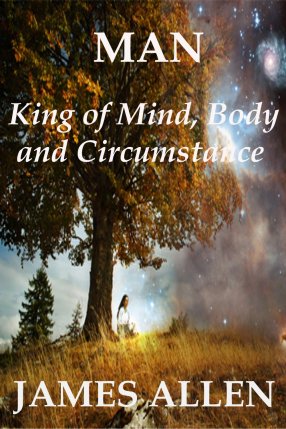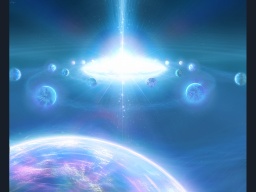2. The outer world of things
Leave a comment2. The outer world of things
by James Allen
Audio Link
sfasdfasdfdsfsdfd
The world of things is the other half of the world of thoughts. The inner informs the outer. The greater embraces the lesser. Matter is the counterpart of mind. Events are streams of thought. Circumstances are combinations of thought, and the outer conditions and actions of others in which each man is involved are intimately related to his own mental needs and development. Man is a part of his surroundings. He is not separate from his fellows, but is bound closely to them by the peculiar intimacy and interaction of deeds, and by those fundamental laws of thought which are the roots of human society.
One cannot alter external things to suit his passing whims and wishes, but he can set aside his whims and wishes; he can so alter his attitude of mind towards externals that they will assume a different aspect. He cannot mould the actions of others towards him, but he can rightly fashion his actions towards them. He cannot break down the wall of circumstance by which he is surrounded, but he can wisely adapt himself to it, or find the way out into enlarged circumstances by extending his mental horizon. Things follow thoughts. Alter your thoughts, and things will receive a new adjustment. To reflect truly the mirror must be true. A warped glass gives back an exaggerated image. A disturbed mind gives a distorted reflection of the world. Subdue the mind, organise and tranquillise it, and a more beautiful image of the universe, a more prefect perception of the world-order will be the result.
Man has all power within the world of his own mind, to purify and perfect it; but his power in the outer world of other minds is subject and limited. This is made plain when we reflect that each finds himself in a world of men and things, a unit amongst myriads of similar units. These units do not act independently and despotically, but responsively and sympathetically. My fellow-men are involved in my actions, and they will deal with them. If what I do be a menace to them, they will adopt protective measures against me. As the human body expels its morbid atoms, so the body politic instinctively expurgates its recalcitrant members. Your wrong acts are so many wounds inflicted on this body politic, and the healing of its wounds will be your pain and sorrow. This ethical cause and effect is not different from that physical cause and effect with which the simplest is acquainted. It is but an extension of the same law; its application to the larger body of humanity. No act is aloof. Your most secret deed is invisibly reported, its good being protected in joy, its evil destroyed in pain. There is a great ethical truth in the old fable of “the Book of Life,” in which every thought and deed is recorded and judged. It is because of this – that your deed belongs, not alone to yourself, but to humanity and the universe – that you are powerless to avert external effects, but are all-powerful to modify and correct internal causes; and it is also because of this that the perfecting of one’s own deeds is man’s highest duty and most sublime accomplishment.
The obverse of this truth – that you are powerless to obviate external things and deeds – is, that external things and deeds are powerless to injure you. The cause of your bondage as of your deliverance is within. The injury that comes to you through others is the rebound of your own deed, the reflex of your own mental attitude. They are the instruments, you are the cause. Destiny is ripened deeds. The fruit of life, both bitter and sweet, is received by each man in just measure. The righteous man is free. None can injure him; none can destroy him; none can rob him of his peace. His attitude towards men, born of understanding, disarms their power to wound him. Any injury which they may try to inflict, rebounds upon themselves to their own hurt, leaving him unharmed and untouched. The good that goes from him is his perennial fount of happiness, his eternal source of strength. Its root is serenity, its flower is joy.
The harm which a man sees in the action of another towards him – say, for instance, an act of slander – is not in the act itself, but in his attitude of mind towards it; the injury and unhappiness are created by himself, and subsist in his lack of understanding concerning the nature and power of deeds. He thinks the act can permanently injure or ruin his character, whereas it is utterly void of any such power; the reality being that the deed can only injure or ruin the doer of it. Thinking himself injured, the man becomes agitated and unhappy, and takes great pains to counteract the supposed harm to himself, and these very pains give the slander an appearance of truth, and aid rather than hinder it. All his agitation and unrest is created by his reception of the deed, and not actually by the deed itself. The righteous man has proved this by the fact that the same act has ceased to arouse in him any disturbance. He understands, and therefore ignores, it. It belongs to a sphere which he has ceased to inhabit, to a region of consciousness with which he has no longer any affinity. He does not receive the act into himself, the thought of injury to himself being absent. He lives above the mental darkness in which such acts thrive, and they can no more injure or disturb him than a boy can injure or divert the sun by throwing stones at it. It was to emphasise this that Buddha, to the end of his days, never ceased to tell his disciples that so long as the thought “I have been injured,” or “I have been cheated,” or “I have been insulted,” could arise in a man’s mind, he had not comprehended the Truth.
And as with the conduct of others, so is it with external things – with surroundings and circumstances – in themselves they are neither good nor bad, it is the mental attitude and state of heart that makes them so. A man imagines he could do great things if he were not hampered by circumstances – by want of money, want of time, want of influence, and want of freedom from family ties. In reality the man is not hindered by these things at all. He, in his mind, ascribes to them a power which they do not possess, and he submits not to them, but to his opinion about them, that is, to a weak element in his nature. The real “want” that hampers him is the want of the right attitude of mind. When he regards his circumstances as spurs to his resources, when he sees that his so-called “drawbacks” are the very steps up which he is to mount successfully to his achievement, then his necessity gives birth to invention, and the “hindrances” are transformed into aids. The man is the all-important factor. If his mind be wholesome and rightly tuned, he will not whine and whimper over his circumstances, but will rise up, and outgrow them. He who complains of his circumstances has not yet become a man, and Necessity will continue to prick and lash him till he rises into manhood’s strength, and then she will submit to him. Circumstance is a severe taskmaster to the weak, an obedient servant to the strong.
It is not external things, but our thoughts about them, that bind us or set us free. We forge our own chains, build our own dungeons, take ourselves prisoners; or we loose our bonds, build our own palaces, or roam in freedom through all scenes and events. If I think that my surroundings are powerful to bind me, that thought will keep me bound. If I think that, in my thought and life, I can rise above my surroundings, that thought will liberate me. One should ask of his thoughts, “Are they leading to bondage or deliverance?” and he should abandon thoughts that bind, and adopt thoughts that set free.
If we fear our fellow-men, fear opinion, poverty, the withdrawal of friends and influence, then we are bound indeed, and cannot know the inward happiness of the enlightened, the freedom of the just; but if in our thoughts we are pure and free, if we see in life’s reactions and reverses nothing to cause us trouble or fear, but everything to aid us in our progress, nothing remains that can prevent us from accomplishing the aims of our life, for then we are free indeed.
Next: 3. HABIT: ITS SLAVERY AND ITS FREEDOM





